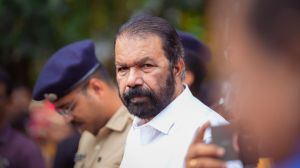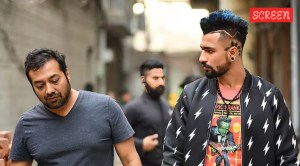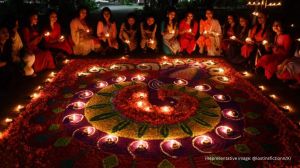Eyes wide shut, ears plugged
The truth is that governments the world over are turning a Nelson’s eye to the wishes of millions. Having glued themselves to the seats...

The truth is that governments the world over are turning a Nelson’s eye to the wishes of millions. Having glued themselves to the seats of power they turn a deaf ear to those who stand outside their bastions, demanding that their voices be heard and heeded.
Take what happened in our very own watan. On February 15, a worldwide call was given for a global protest against the impending Iraq war. Millions came out to say ‘no’ to war. Banners expressed mass outrage and a staggering number of bodies filled public squares in London, Melbourne, Paris, Berlin, Sydney, Moscow and Toronto, apart of course from several US cities. All over South Asia voices were raised against USA, the global supercop.
Earlier, on February 10, thousands had taken to the streets in Delhi. Given this, some of us wondered whether people would turn up again in five days’ time. A candlelight vigil was announced in front of the Gandhi Samadhi at Rajghat. The moving spirit behind it was Nirmala Deshpande, a woman who has become synonymous with India’s peace movement.
At 6 pm, two rows of schoolchildren stood in front of Rajghat. How many more will come, we wondered. Slowly the numbers swelled: students, teachers, professionals, housewives, women and men of all ages. It was a perfect evening, cool and clear. As the candles were lit, children from Kasturba Balika Vidyalaya and Harjan Sewak Sangh sang songs they had prepared for the occasion. Banners fluttered in the gentle breeze carrying the words: ‘The American Dream has created a Nightmare for Many’.
I saw a family in which three generations had come to participate. The first generation was represented by three women, now graceful in their old age. As young girls, they had jumped into the freedom struggle. Their children symbolised the second generation: young professionals who had been at the vanguard for two decades. Their grandchildren represented the third, college students who felt they had a stake in the future. A young woman, a filmmaker I have known since she was a child, was there with her two-year-old son on her shoulder. The lighted candles were reflected in the child’s eyes.
Later that night, calls started pouring in. Gandhians had organised rallies, inter-faith meetings, dharnas, vigils all over India. In Bihar, protests were held in 25 places including Madhubani and Bhagalpur. In Jharkhand, at Daltonganj. In UP, at Muzaffapur, Shahjehanpur, Hardoi, Faizabad. In J&K, at Srinagar, Jammu, Doda, and Kishtwar; in Maharashtra, at Phandharpur. There were protests in Chennai, Hyderabad, Bubhaneswar, Mumbai, Kolkata.
How many papers reported this? Did TV channels reflect the general abhorrence for a war that will train missiles on innocent Iraqi civilians? What about our leaders? Did they listen to voices they claim to represent? If European nations can demand that the war option be rejected, why has India — the traditional bastion of peace — chosen to remain silent?



- 01
- 02
- 03
- 04
- 05




























